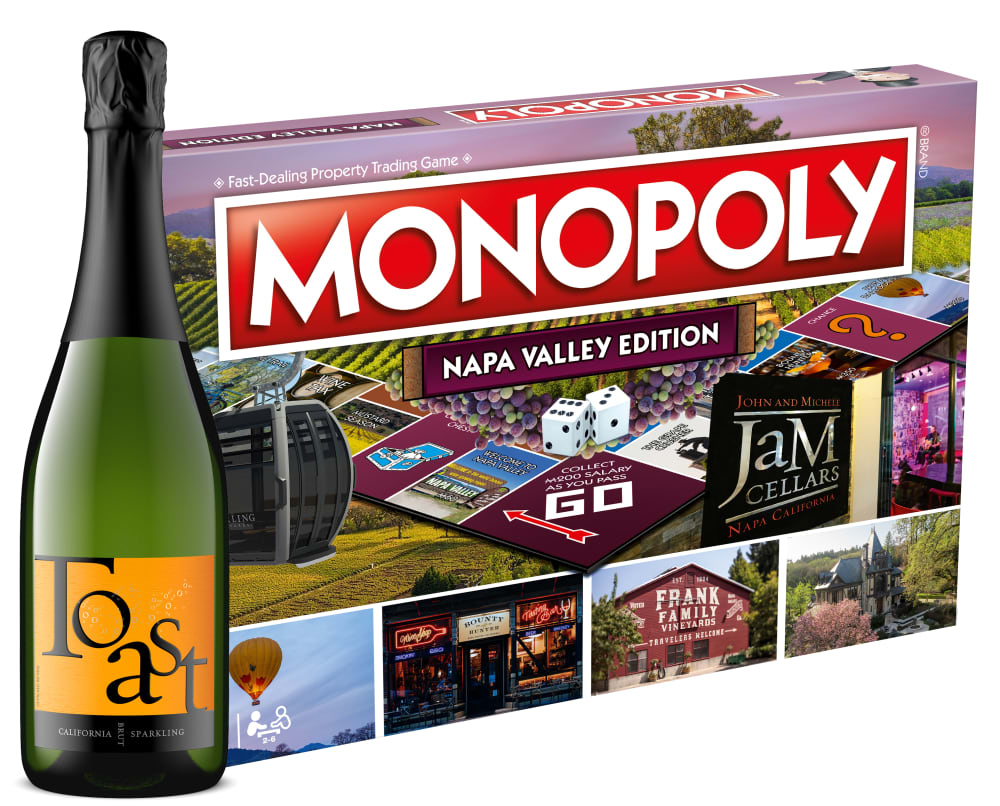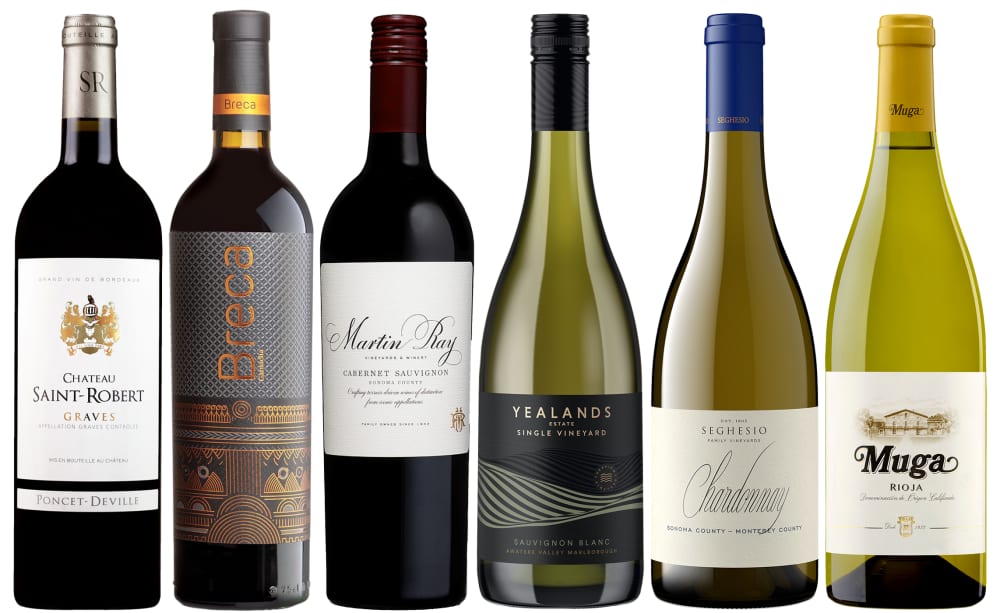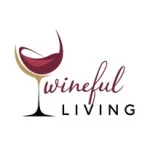This post may contains affiliate links. Read our full disclosure here.
The wine industry thrives on connections. In my years working with boutique wineries and attending countless tastings, I’ve seen firsthand how wine industry networking transforms careers and businesses. It’s 2025, and success in the wine world depends less on what’s in your bottle and more on who knows about it. Wine industry networking has become the backbone of distribution deals, media coverage, and career advancement. Whether you’re pouring at a tasting room or managing a portfolio of brands, your professional relationships often determine how far you’ll go.

I’ve watched talented winemakers struggle simply because they didn’t prioritize building their network, while others with decent (but not exceptional) products flourished through strategic relationships. The truth about wine industry networking is that it’s both an art and a science. With intentional connections and authentic engagement, you can create a web of relationships that supports your wine business for years to come.
Why Networking Matters in the Wine Industry

- Your connections fuel distribution channels, media exposure, and creative collaborations
- The wine world is tight-knit — reputation moves quickly, both good and bad
- Networking keeps you looped into trends, opportunities, and innovations
In the wine business, who you know can matter as much as what you know. After attending dozens of industry events, I’ve observed how personal connections open doors that might otherwise remain closed. That coveted spot at the regional wine festival? It probably went to someone who built genuine relationships with the organizers. The feature in Wine Spectator? Often initiated through a personal introduction.
Wine industry networking isn’t just about landing immediate sales. It’s about creating an ecosystem where opportunities flow naturally your way. When I started attending wine events professionally, I quickly learned that building a local wine community created ripple effects that benefited everyone involved. The winemaker who helped me understand microclimate nuances later became a collaborator on a wine education series.
Remember that in this industry, your reputation travels faster than your business cards. Being known as reliable, knowledgeable, and generous with your connections makes others more likely to recommend you when opportunities arise. Wine industry networking isn’t just smart business—it’s essential for longevity.
Where to Make the Right Connections

- Attend wine expos, regional tastings, and trade-focused conferences
- Use LinkedIn for wine professionals to follow, connect, message, and comment
- Join associations like Women of the Vine & Spirits, your regional winegrowers organization, or alumni networks
Finding the right venues for wine industry networking can dramatically improve your connections’ quality. Major trade shows like ProWein, Vinexpo, and the London Wine Fair gather thousands of industry professionals under one roof. While these events can be overwhelming, they offer unparalleled opportunities to connect with international buyers and influencers.
Don’t overlook smaller, regional events either. My most valuable professional wine connections often came from intimate tastings where I had time for meaningful conversations. Regional wine road associations and appellation-specific events let you connect with neighbors who understand your specific challenges and opportunities.
Online platforms have transformed wine industry networking in recent years. LinkedIn has become the go-to platform for wine professionals to showcase expertise and build connections. Industry-specific groups like Guild of Sommeliers or Wine Business Education Network facilitate discussions among peers with similar interests. Taking wine with coworkers has also proven valuable for expanding my professional circle beyond immediate industry contacts.
When choosing where to focus your networking efforts, consider your specific goals. Seeking distribution? Prioritize trade shows and distributor-focused events. Looking for production insights? Winemaker associations and technical conferences will serve you better. Strategic wine industry networking means being selective about where you invest your time.
How to Network Authentically in the Wine Business

- Ask thoughtful questions about someone’s work before you mention your own
- Share wine stories and passion projects to build bridges
- Follow up within a week — lead with a kind word, not a sales pitch
The wine industry values authenticity above almost everything else. Nobody wants to feel like they’re being worked for connections or opportunities. After years in tasting rooms and at trade events, I’ve found that genuine curiosity works better than polished pitches. When meeting someone new, I try to learn about their challenges and passions before sharing my own projects.
Wine provides natural conversation starters. Asking meaningful questions about someone’s journey into wine or their favorite recent discovery creates instant rapport. During a recent regional tasting, I connected with a distributor not by pitching my portfolio but by discussing our shared love for overlooked Spanish varieties. Two months later, they reached out about carrying our wines.

Follow-up is where most networking efforts succeed or fail. After connecting with someone, I send a personalized message within a few days, referencing our conversation and offering something of value—an article, an introduction, or simply appreciation for their insights. When asking questions during winery tours, I take notes to reference in follow-up communications, showing I valued what I learned.
Remember that wine industry networking is a marathon, not a sprint. Some of my most valuable professional relationships took years to develop. Be patient, consistent, and focused on building genuine connections rather than extracting immediate value.
Building a Personal Wine Brand Online

- Post helpful insights or behind-the-scenes content once or twice a week
- Tag collaborators, share relevant articles, and highlight industry events
- Comment meaningfully on others’ content to stay visible and connected
Your digital presence plays a crucial role in wine industry networking in 2025. I’ve seen countless professionals transform their careers through strategic online presence. LinkedIn has become particularly valuable for wine professionals—sharing insights, commenting on industry trends, and highlighting collaborations creates visibility that extends far beyond your immediate circle.
Content that performs best isn’t promotional but educational or conversational. My posts about harvest challenges or pairing discoveries consistently outperform announcements about awards or new releases. People connect with stories and insights, not advertisements. Platforms like Instagram work wonderfully for visual storytelling, while LinkedIn supports more in-depth industry discussions.
Engagement matters more than broadcasting. I set aside 15 minutes daily to comment meaningfully on others’ posts, congratulate colleagues on achievements, and participate in industry discussions. This regular engagement keeps me visible in others’ feeds and demonstrates genuine interest in the community. Organizing virtual wine tastings with friends and colleagues has also expanded my network in unexpected ways.
Don’t underestimate the power of consistency. Sporadic posting followed by silence signals disengagement. A modest, regular schedule of quality content works better than bursts of activity followed by absence. Wine industry networking online should feel like an ongoing conversation, not a series of announcements.
Turning Casual Chats Into Career Opportunities

- Reach out after meeting someone for coffee, a Zoom, or even a shared bottle
- Offer introductions or ideas tied to what matters to them, not you
- A simple “thank you” message can turn a contact into a loyal collaborator
The magic of wine industry networking happens when brief encounters transform into meaningful professional relationships. After connecting with someone interesting, I follow a simple formula that has consistently yielded results: express appreciation, reference something specific from our conversation, and propose a concrete next step. This approach converted a casual chat at a wine festival into a consulting opportunity with a luxury brand.
Looking for ways to offer value before asking for favors creates relationship momentum. When I meet someone working on an interesting project, I think about who in my network might help them succeed. Making thoughtful introductions positions you as a connector and resource. After learning a new contact was struggling with bottle photography, I connected them with my photographer friend—cementing both relationships simultaneously.

Don’t underestimate small gestures. Sending relevant articles, congratulating achievements, or simply checking in periodically maintains connections without feeling pushy. When a sommelier I met briefly mentioned searching for unusual Spanish wines, I sent three recommendations with no expectation of return. Six months later, they featured our wines in their restaurant program. Learning how to host a wine and cheese night has given me a perfect excuse to reconnect with industry contacts in a relaxed setting.
Wine industry networking flourishes with patience and genuine interest. The distributor relationship that now accounts for 40% of our sales began with a casual conversation and took eight months to develop into a business partnership. Focus on building relationships, not transactions.
Quickfire Wine Business Networking Strategies for 2025

- Keep business cards on your phone with a QR code LinkedIn profile
- Set monthly reminders to check in with 3–5 contacts
- Write 2-3 public endorsements on LinkedIn per quarter
- Join at least one online discussion weekly (Reddit, Clubhouse, X Spaces, etc.)
- Send articles or industry news to someone you’ve recently connected with
The most effective wine industry networking happens through small, consistent actions rather than grand gestures. I’ve implemented several practical strategies that keep my network warm without requiring enormous time investments. Digital business cards with QR codes linking to my LinkedIn profile have replaced traditional cards, giving connections immediate access to my background and mutual connections.
Systematizing follow-up prevents valuable relationships from going cold. My calendar includes monthly reminders to reach out to different segments of my network—sommeliers, winemakers, media contacts, and distributors. These check-ins aren’t elaborate; a simple message about a recent industry development or congratulations on a milestone keeps the connection active.
Public recognition creates goodwill and visibility. When I write LinkedIn recommendations or publicly congratulate connections on achievements, it strengthens our relationship while demonstrating my engagement with the industry. This visibility often leads to second-degree connections reaching out to explore potential collaborations.
Online communities provide accessible networking opportunities regardless of your location. I participate regularly in wine-focused discussions on Reddit’s r/wine, Twitter/X spaces on wine marketing, and industry-specific Discord servers. These platforms connect me with professionals I might never encounter at regional events while establishing my voice on topics relevant to my expertise.

The most powerful wine industry networking strategy remains the simplest: be helpful without expectation of immediate return. Whether it’s making an introduction, sharing a resource, or simply listening when someone faces challenges, genuine helpfulness creates lasting impressions that translate into meaningful opportunities.
Building a strong network in the wine industry requires intention, patience, and authenticity. The connections you nurture today may not yield obvious benefits for months or even years, but they create a foundation for sustainable success. Wine industry networking isn’t about collecting contacts—it’s about building a community of professionals who trust and value your contributions. By focusing on genuine relationships rather than transactional interactions, you’ll develop connections that withstand market fluctuations and industry evolution.
The next time you attend a tasting, join an online discussion, or reach out to a new contact, remember that you’re not just exchanging information—you’re creating possibilities. The distributor you meet today might become your biggest champion tomorrow. The winemaker you help with a technical challenge might introduce you to your next employer. In an industry built on passion and personal relationships, thoughtful wine industry networking might just be the most valuable skill you develop.




